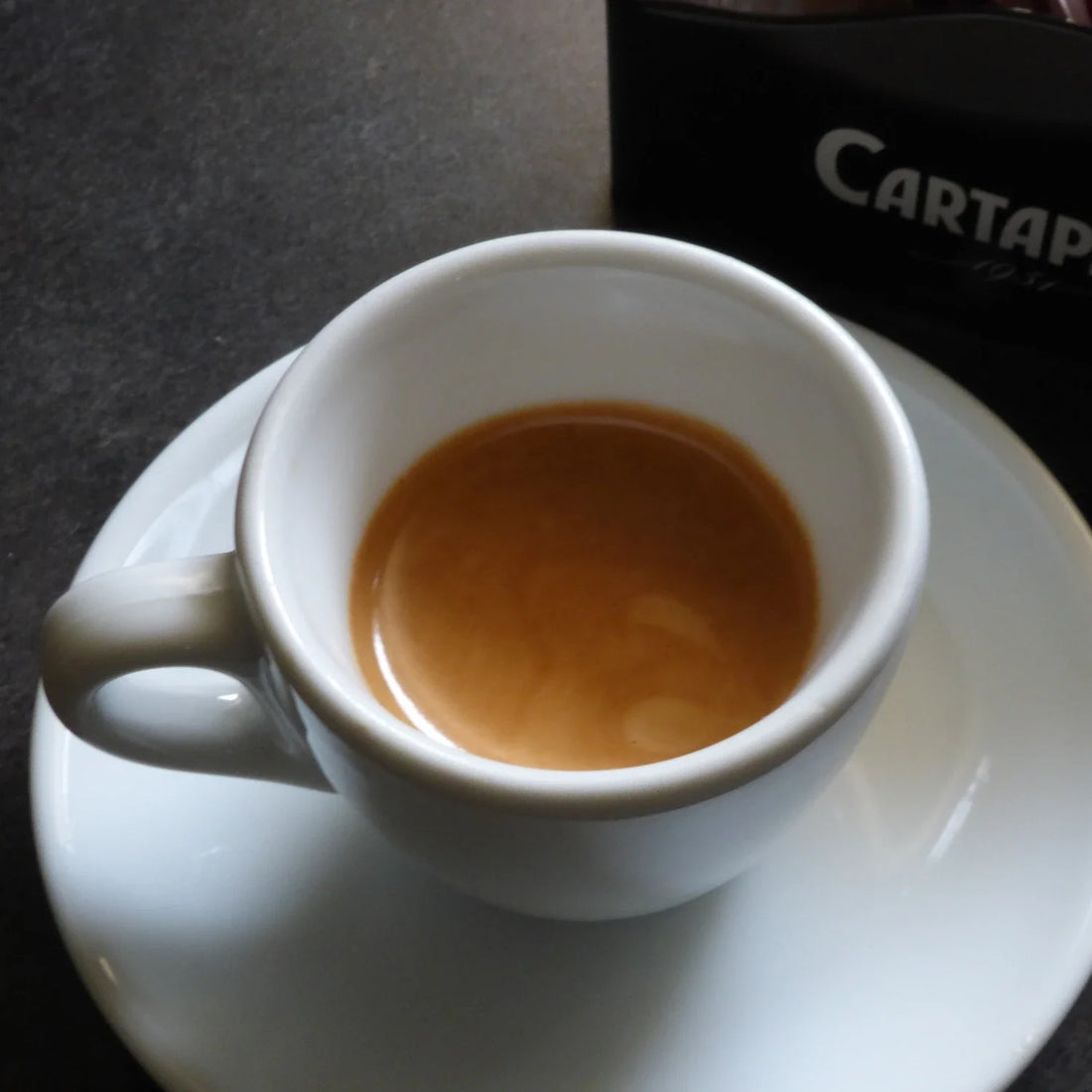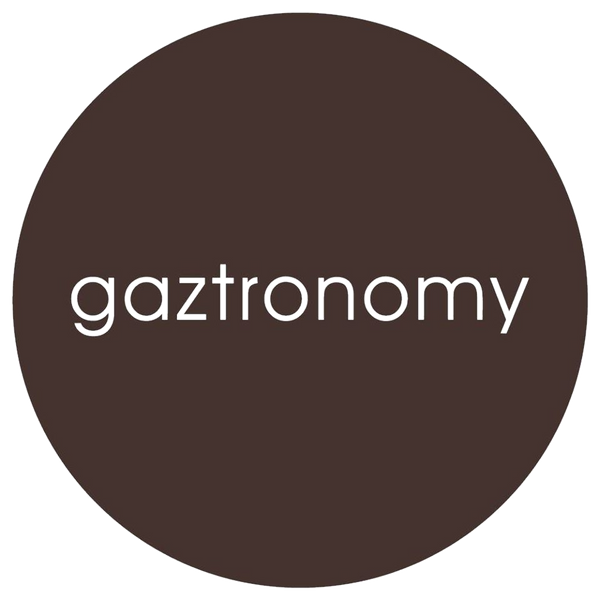
How Much Caffeine Is in a Shot of Espresso?
Share
Did you know that the average American drinks two cups of coffee per day? Depending on your lifestyle, that number could be much higher (or lower). In fact, some people can't get through the day without drinking coffee.
If you're one of those people who needs coffee to function, you might be wondering how much caffeine is in a shot of espresso. After all, espresso is a concentrated form of coffee and it packs a punch.
We've put together a caffeine guide that has everything you need to know. Let's dive in.
What Is Caffeine?
Caffeine is a naturally occurring stimulant that you can find in coffee beans, tea leaves, and cocoa beans. It's also added to some sodas, energy drinks, and even over-the-counter medications.
To elaborate, caffeine pills exist to help people stay awake and alert. Caffeine works by blocking adenosine receptors in the brain.
Adenosine is a neurotransmitter that makes you feel sleepy. So, by blocking those receptors, caffeine keeps you from feeling tired.
How Is Caffeine Manufactured?
Caffeine is extracted from coffee beans through a process of boiling and filtering. The beans are first roasted, which brings out their flavor.
They're then ground into a fine powder and placed in boiling water. After a few minutes, the water is filtered to remove the coffee grounds.
This leaves behind a concentrated liquid that's high in caffeine. Complications during this process can result in lower caffeine levels.
The next step is to remove the water from the liquid, which can be done through evaporation or freeze-drying. This leaves behind a pure form of caffeine that's ready to be used. Caffeine can also be synthetically produced in a lab by combining nitrogen, chlorine, and methylxanthine.
This process is often used to create caffeine for sodas and energy drinks.
What Is Espresso?
An espresso is a type of coffee that you can make by forcing hot water through ground coffee beans. People serve it in small doses and has a higher caffeine content than regular coffee.
Its history stems from Italy, where it's been a popular drink for centuries. The end result is a small amount of coffee that's rich in flavor and high in caffeine. For this reason, espresso is often used as a base for other drinks like cappuccinos, lattes, and mochas.
How Much Caffeine Is in a Shot of Espresso?
A single shot of espresso contains about 64 milligrams of caffeine. This is about double the amount of caffeine in a cup of brewed coffee, which has about 95 milligrams.
To clarify, regular coffee is more diluted and has a much smaller concentration of caffeine than a shot of espresso. Imagine having an entire coffee cup filled with espresso!
If you're sensitive to caffeine, you might want to stick to a regular coffee or decaf espresso. Or, you could try an espresso alternative like matcha or turmeric latte.
How Does the Caffeine in Espresso Compare to Other Drinks?
Espresso is one of the most caffeinated drinks available. In fact, it has more caffeine than a cup of coffee, tea, or soda.
Here's a quick breakdown of the caffeine content in popular drinks:
-
Coffee: 95 milligrams
-
Tea: 47 milligrams
-
Soda: 34 milligrams
-
Espresso: 64 milligrams
It's worth noting that all of these drinks are different sizes. As mentioned above, though, espresso has the highest concentration of caffeine per ounce. It's no wonder why many people opt for an espresso when they need an energy boost!
How Long Does Caffeine Last?
The effects of caffeine can be felt within 15-30 minutes after consumption.
The peak concentration occurs around 45-60 minutes after ingestion. However, the half-life of caffeine is about 5 hours.
This means that it takes about 5 hours for the body to eliminate half of the caffeine consumed. So, if you drink a cup of coffee at 8 am, there will still be half the caffeine in your system at 1 pm.
The effects of caffeine can vary from person to person, but they typically last for 3-4 hours. The most important thing to remember is that you shouldn't consume caffeine before you go to sleep at night.
How Much Is Too Much?
Most healthy adults can safely consume 400 milligrams of caffeine per day.
That's the equivalent of 4 cups of coffee. However, pregnant women and people with anxiety disorders should limit or completely avoid their intake caffeine consumption.
Consuming more than 400 milligrams of caffeine can lead to side effects such as restlessness, irritability, and difficulty sleeping. In extreme cases, it can even cause tremors and hallucinations.
So, it's best to stick to the recommended daily limit. If you experience any of the symptoms, it's best to cut back on your intake until they improve.
What Are the Effects of Caffeine?
Caffeine leads to increased alertness and wakefulness.
It can also improve focus and concentration. That's why many people drink coffee before work or during long study sessions. In large doses, caffeine can cause side effects like anxiety, jitters, and heart palpitations.
It can also interfere with sleep. Interestingly, caffeine affects different people in different ways.
This means that some people can drink multiple cups of coffee without feeling any adverse effects. Others might feel side effects after just one cup.
What Is Decaf Coffee?
Decaf coffee is coffee that has had most of the caffeine removed. The decaffeination process can remove 97-99% of the caffeine from coffee beans. This process works by using water or chemicals to extract the caffeine from the beans. Decaf coffee still contains a small amount of caffeine, but it's much lower than regular coffee.
In decaf espresso, there are approximately 3-12 milligrams of caffeine per shot.
Decaf coffee is a great options for people who want to enjoy the taste of coffee without the stimulating effects of caffeine.
It's also a good choice for people who are sensitive to caffeine or have trouble sleeping.
What Can I Do to Reduce the Caffeine Concentration of Espresso?
One of the best options to reduce the caffeine concentrations is probably to dilute your espresso by making different drinks. Some of the most popular are mocha, cappuccino, and latte. These all contain espresso, but they also have milk and other ingredients that help to reduce the concentration of caffeine.
Of course, you will need to use high-quality beans in order to get the best possible taste.
The type of coffee bean you use will have a big impact on the flavor of your espresso and espresso-based drinks. If you want a smooth and mellow espresso we recommend using medium roast beans.
It's also important to use freshly ground beans. Coffee beans start to lose their flavor as soon as they're ground. So, if you use pre-ground beans, your espresso will taste stale.
To get the best flavor, buy whole bean coffee and grind your beans just before brewing.
